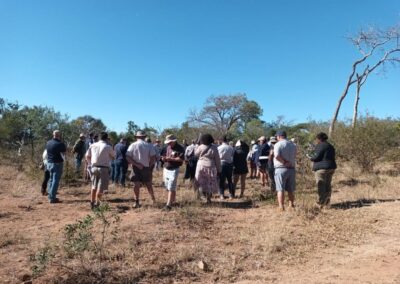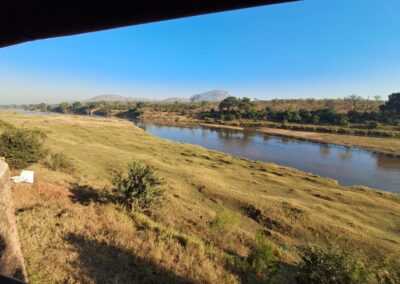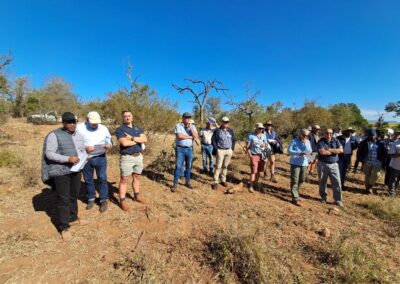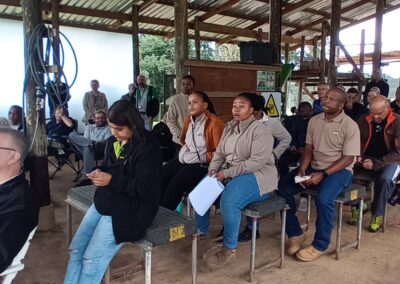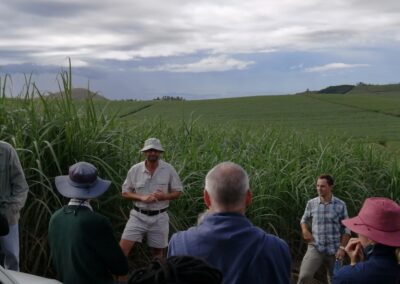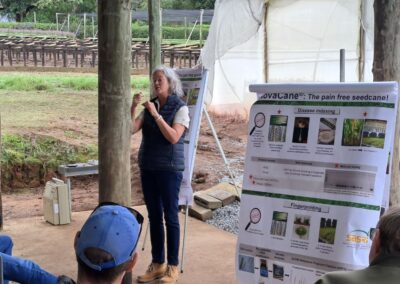SASIAA Field Days
SASIAA Home
Constitution
Symposia
Field Days
Trial Reports
2025 FIELD DAY: MARGARET AND CHANTILLY FARMS NEAR DARNALL
THEME: DIVERSIFICATION OPPORTUNITIES WITHIN SUGARCANE FARMING
Thursday, 15 May 2025
This year we hosted a field day near Darnall to showcase two examples of diversification happening within sugarcane farming on the KwaZulu-Natal north coast.
As part of our learnings about crop diversification during SASIAA field days we have never visited banana plantations. This year we did just that on Dustin Cooper’s Margaret Farm. During the visit we learned more about this very interesting fruit crop from planting, agronomic and ratoon management, all the way to harvesting and packaging in the on-farm banana packhouse.
After “going bananas” we travelled to Dieter Lütge’s Chantilly farm where the South African Cane Growers’ Association, through its subsidiary Womoba, is exploiting a diversification opportunity from sugarcane itself. Here we toured a facility where the world’s first raw sugarcane-based energy drink branded as “Shesha™” is being produced. We saw how the energy drink is being produced from cane stalks harvested on Dieter’s farm and we were treated to an energy drink tasting of the various flavours on offer. We ended the field day with a sponsored packed lunch together with ice-cold Shesha™.


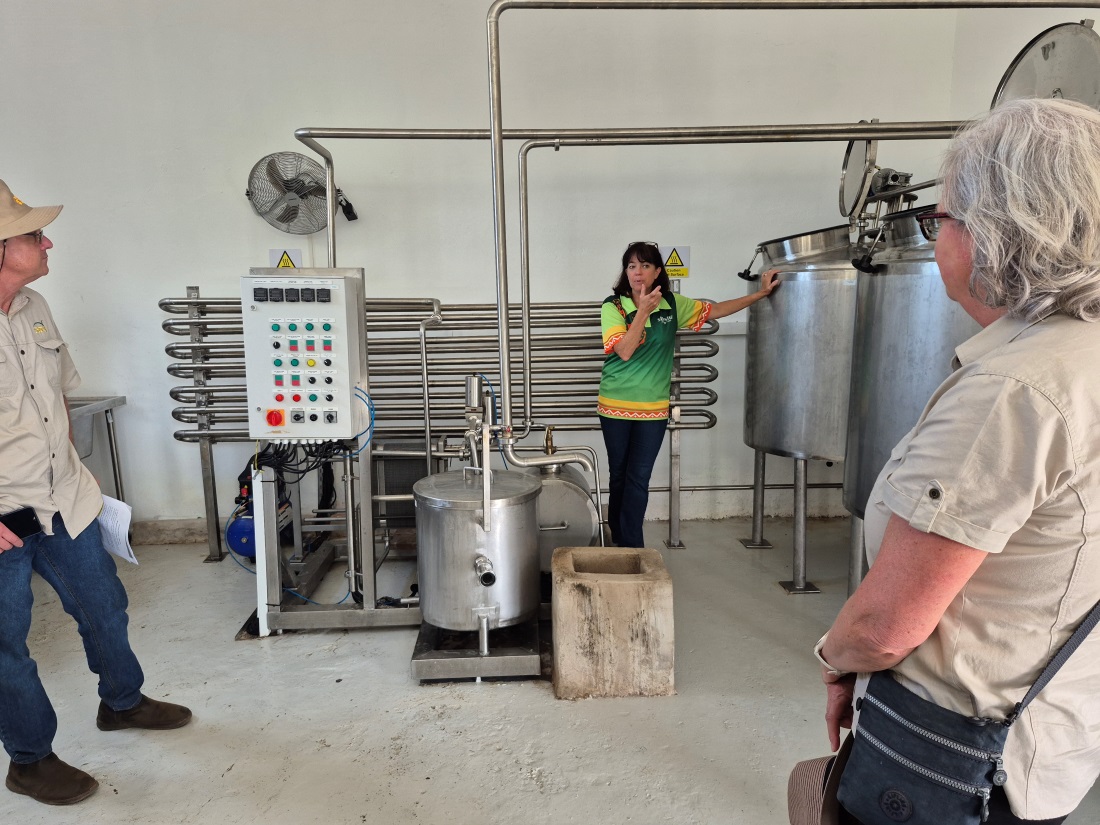
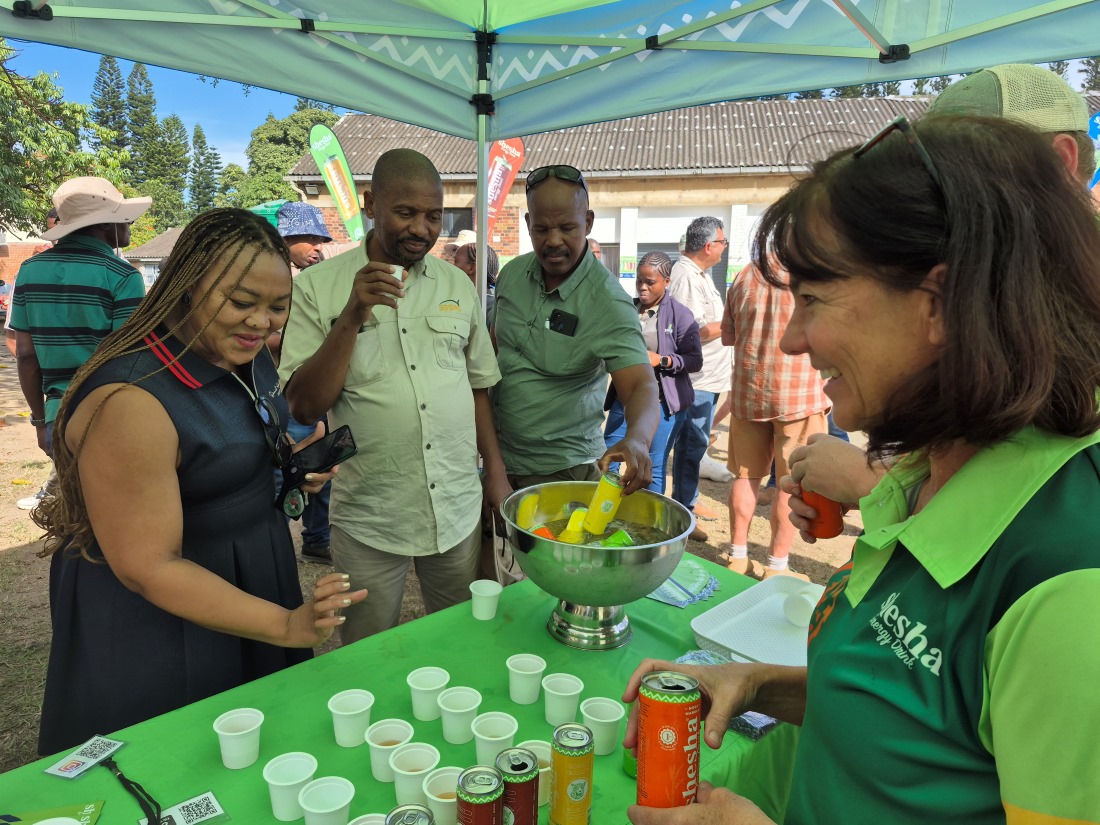
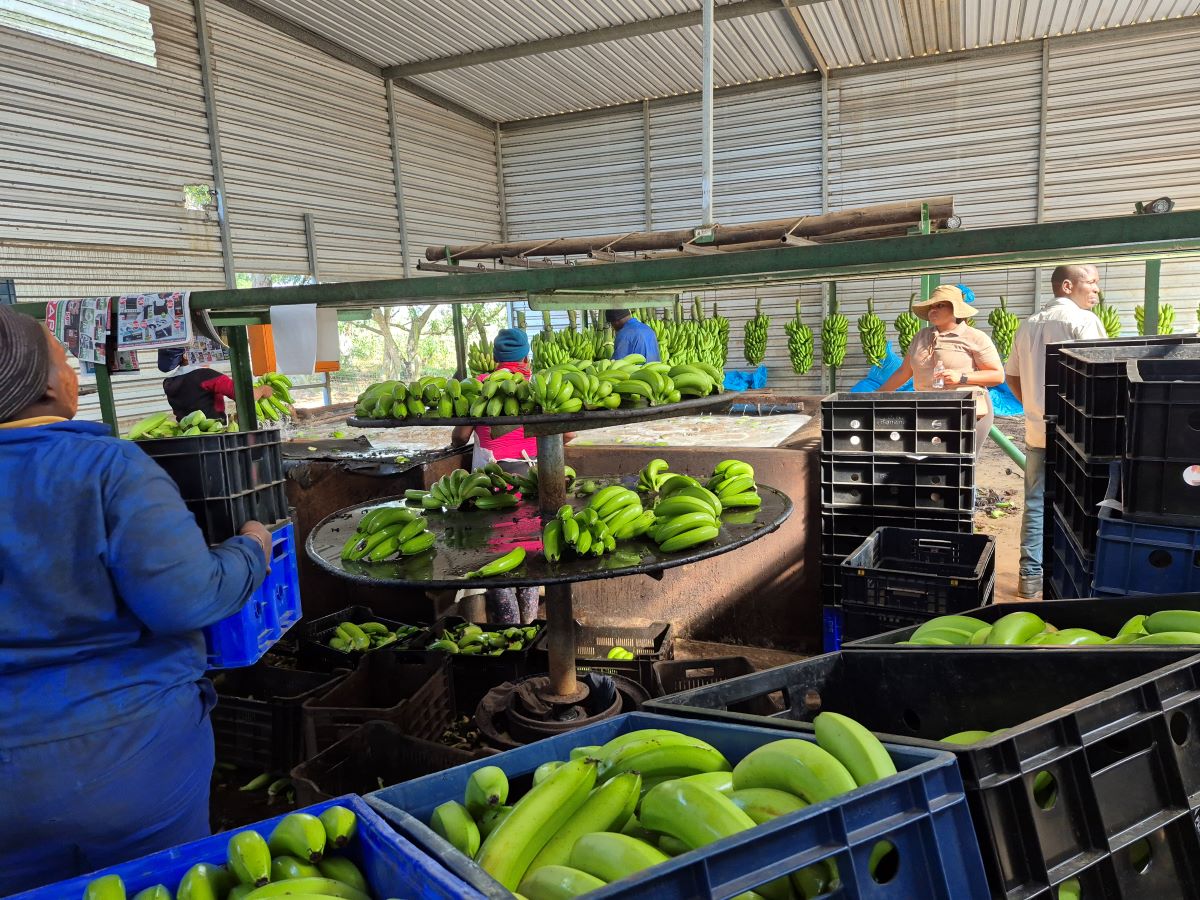
2024 FIELD DAY: RIVERSIDE FARM NEAR MALELANE
THEME: LABILE SOIL CARBON DYNAMICS IN A LOWVELD LANDSCAPE
Wednesday, 12 June 2024
This year, we hosted a field day near Malelane with a focus on labile soil carbon. Worldwide, the labile soil carbon pool (fresh organic matter) is attracting greater attention due to its sensitivity to land use practices, soil physical attributes, and nutrient dynamics.
The aim of this field day was to create awareness of labile soil carbon dynamics and management practices that promote soil organic matter. The field day was attended by more than 60 SASIAA members and non-members.
The structured programme took attendees on a journey of scale, from the small detail (labile carbon in soil) to the bigger picture at the chosen study site on Riverside Farm. There were presentations explaining what labile soil carbon is, how it can be measured, and how different soils require different management approaches. The general geology of the study area was also shown as a pictorial journey through time.
The attendees then visited the study area on Riverside Farm where a new soil test, under development by SASRI, was used to reveal the diversity in labile soil carbon levels as affected by conditions in the game farm and adjacent cultivated areas.
The day was concluded with a sponsored braai with refreshments at the RCL Crocodile Lapa where attendees enjoyed the amazing scenery on offer across the Crocodile River.
Programme Content
1. Welcome and Introduction to SASIAA (Riekert van Heerden, SASIAA Coordinator, SASRI) View PDF
2. Setting the Scene: Labile Soil Carbon (Rianto van Antwerpen, Private soil science consultant) View PDF
3. Advances in Labile Soil Carbon Testing (Dimpho Elephant & Thandile Mdlambuzi, Soil Scientists, SASRI) View PDF
4. Management of Diverse Soils (Rowan Stranack,Extension and Biosecurity Manager, SASRI) View PDF
5. Setting the Scene: Geology 101 of Study Area (Jan Erasmus, Extension Specialist, SASRI) View PDF
6. Welcome and Introduction to Riverside Farm (Francois Joubert, Komati Fruits)
7. Tour of Labile Soil Carbon Testing Points View PDF
8. Sampling Points Labile Soil Carbon Values View PDF
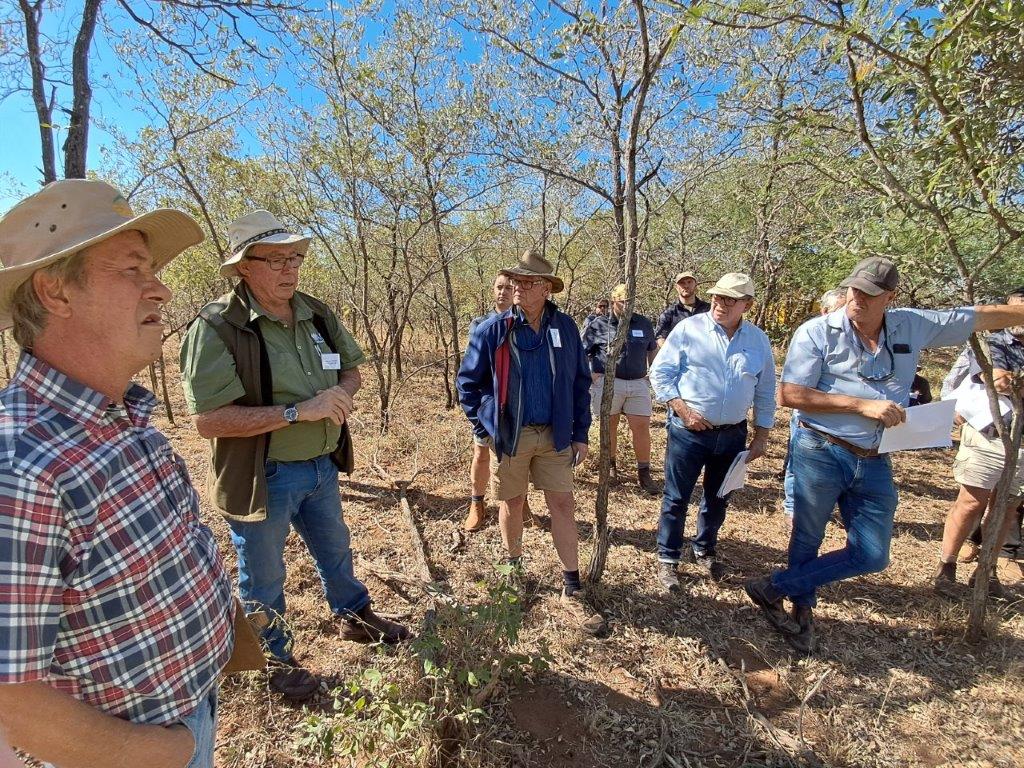
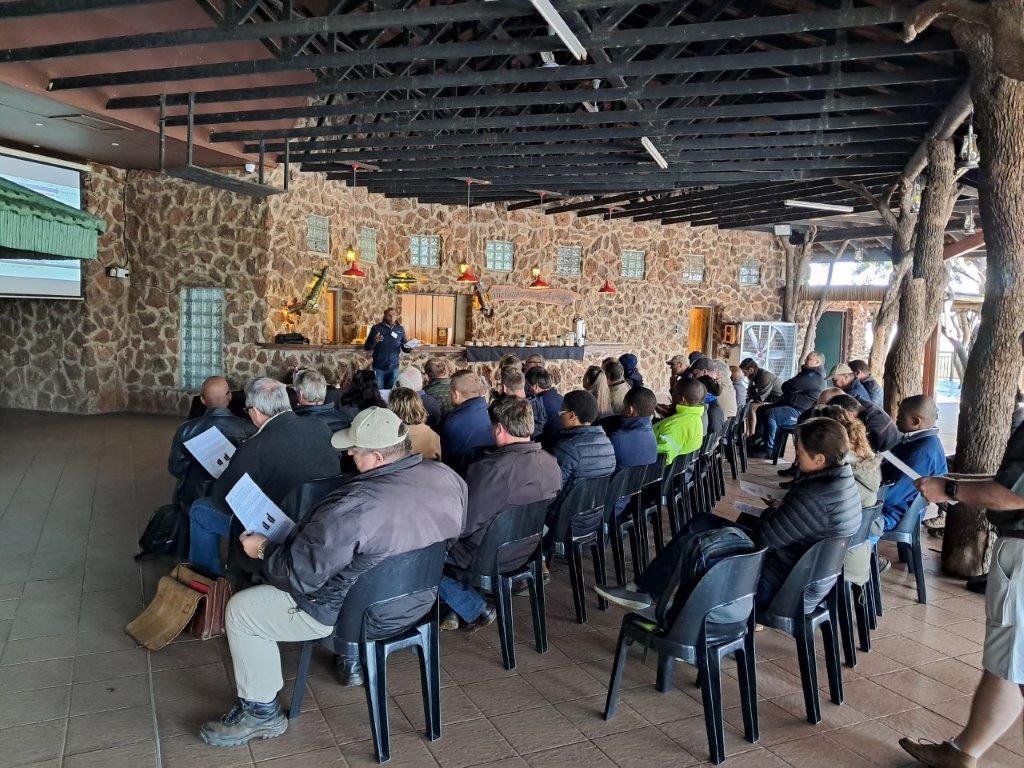
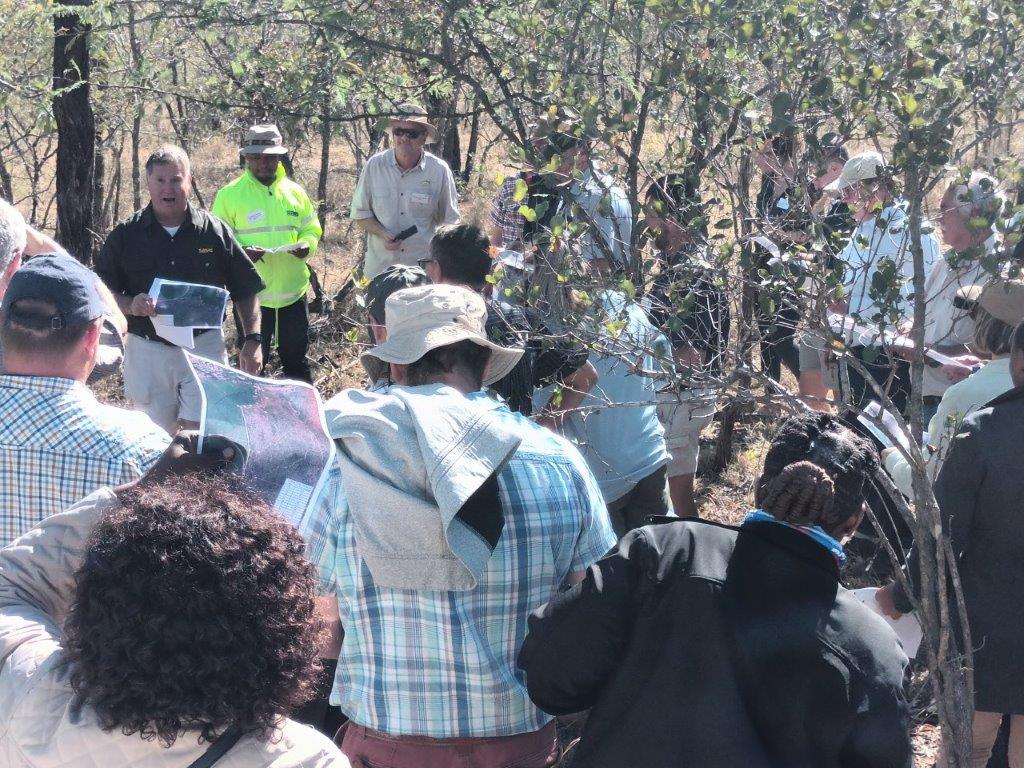
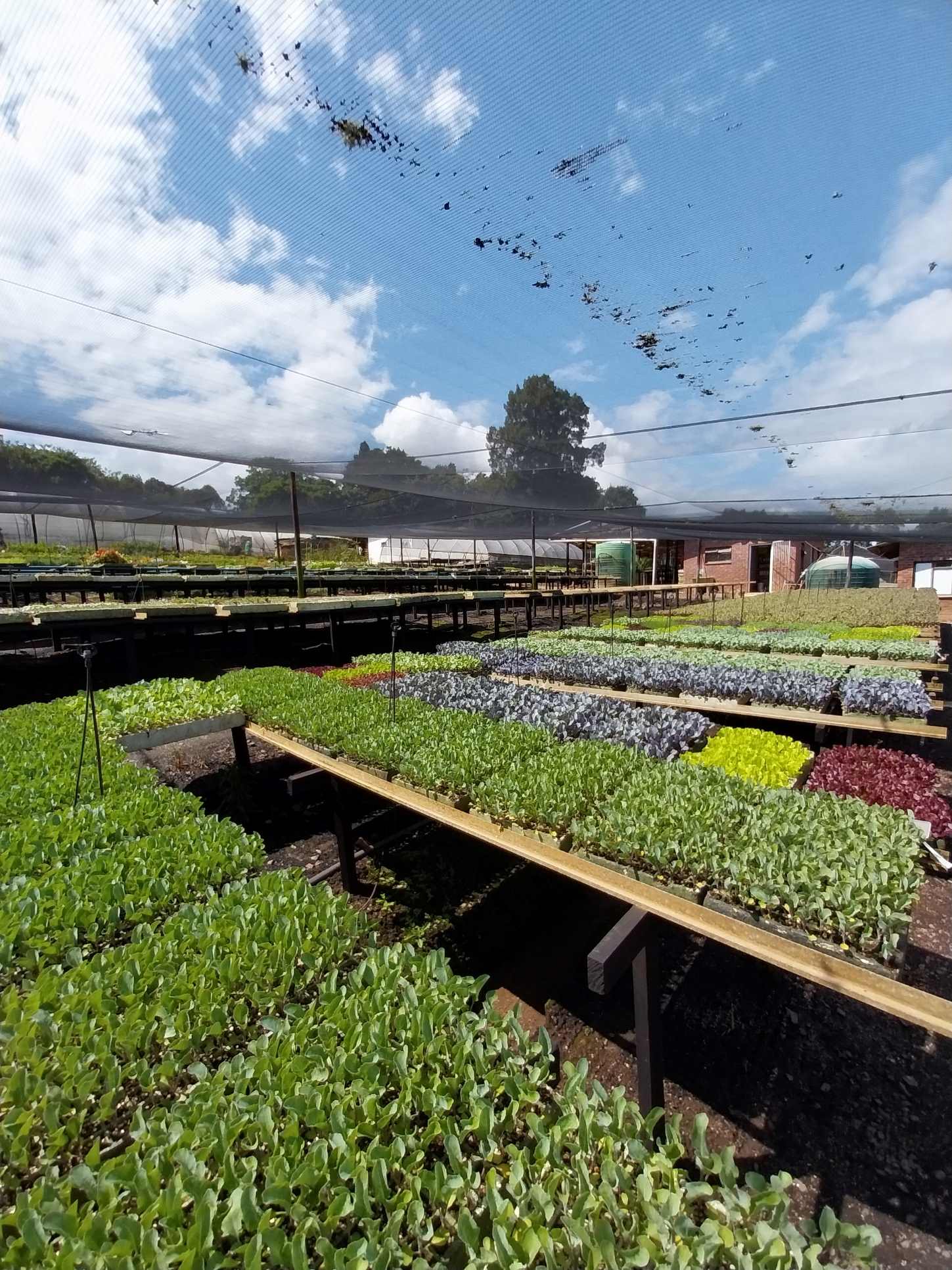
FIELD DAY – WEDNESDAY, 10 MAY 2023
THEME: SEEDCANE – FROM LABORATORY TO FIELD
ZULULAND NURSERIES (GARETH CHITTENDEN) AND SUNSET FARM (COLIN HOHLS) IN ESHOWE
This year we hosted a field day in Eshowe with a focus on NovaCane®. NovaCane® plantlets are multiplied through tissue culture protocols in a laboratory, thereby enabling propagation of many true-to-type, disease-free plants in a relatively short period using a minimum quantity of starting material.
During the field day association members were taken on a journey from NovaCane® production in the laboratory, the growing and hardening-off of NovaCane® plantlets in a well-managed commercial nursery, and ultimately establishment of a certified seedcane scheme. Members also saw how Zululand Nurseries caters for the diversified farming needs of growers, by being a supplier of seedlings of many other crops.
On Sunset Farm the establishment and bulking up of seedcane from NovaCane® source was showcased. We witnessed the growth of NovaCane® plants of a new SASRI variety in the field and learned more about research into the agronomic management of NovaCane® plants.
The take-home messages from the field day were that there are tried-and-tested protocols and processes in place allowing the production of high quality certified seedcane, and that this planting material is the cornerstone of attaining the yield potential of sugarcane crops.
FIELD DAY – THURSDAY, 12 MAY 2022
THEME: FARMING FOR DIVERSIFICATION
BARRY COLE’S SUTHERLAND FARM IN THE JOLIVET REGION
During 2020 and 2021 we were forced to cancel our very popular field days due to the COVID-19 pandemic. This year we hosted a field day on Barry Cole’s Sutherland farm in the Jolivet region. Barry discussed his reasons for diversification and shared his joy and learnings in farming using this practice. Society members visited a variety trial comparing six new SASRI sugarcane varieties and learned how these new varieties have impacted harvesting patterns and income. We learned how thrips are controlled in macadamia orchards using an integrated pest management system and how careful selection of plant species established on the farm ensure that a healthy bee population is maintained to pollinate the macadamias. We also visited guava orchards (including a processing plant), timber and cattle on the farm and saw how cover crops are used with every opportunity to maintain soil health. The take-home message from the field day was that the main purpose of diversification in agriculture is the re-allocation of some of a farm’s productive resources, such as land, capital, farm equipment and labour to other income streams.
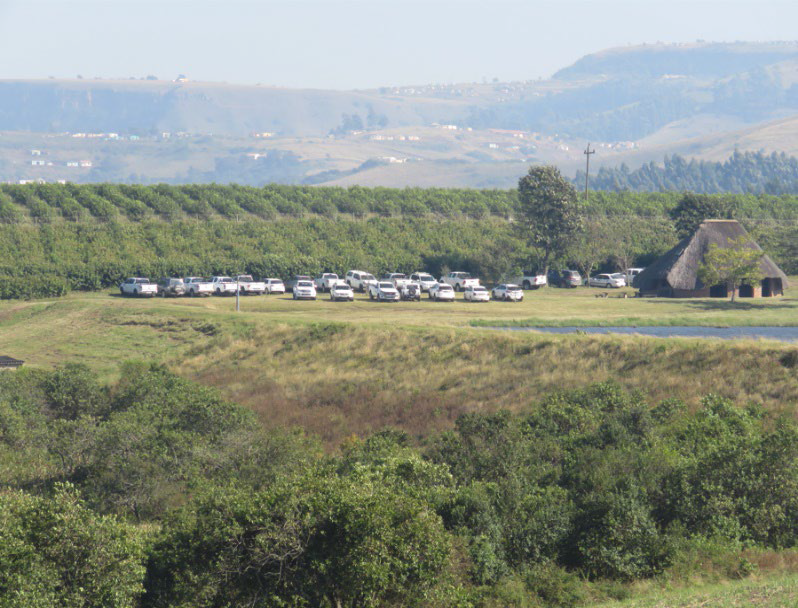
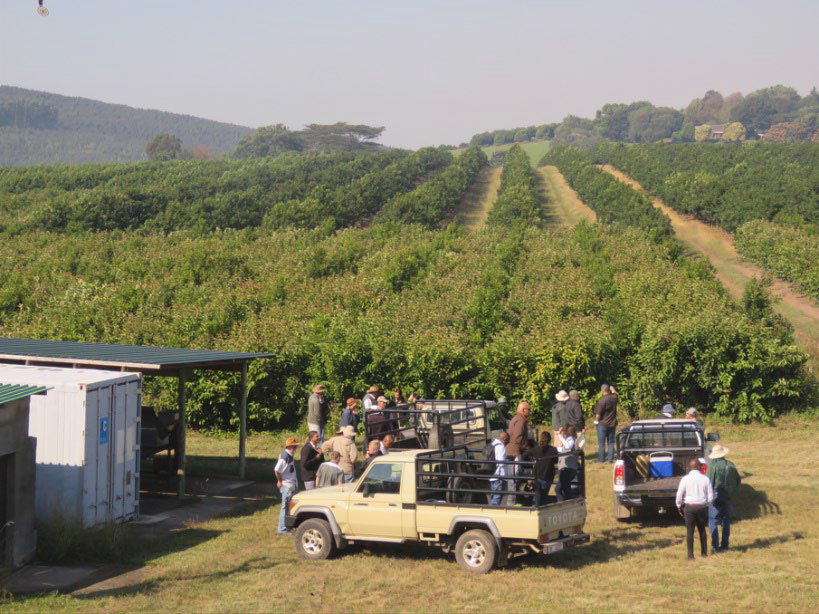
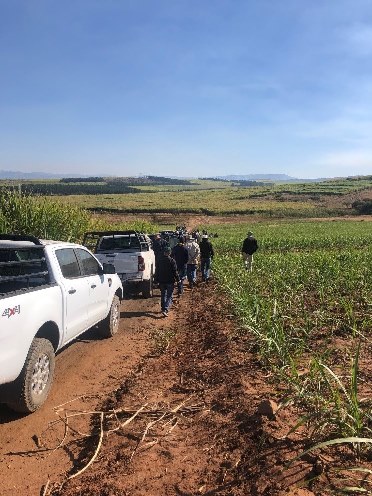
2019 FIELD DAY: WHITE THORNS FARM, DALTON
The field day on White Thorn farms owned by Conrad and Henning Klipp in Dalton was hugely successful with an attendance of over 60 Agronomist Association members.
The farm owners, brothers Conrad and Henning Klipp are are avid promoters of good soil health to grow a healthy crop. Their farming philosophy ensures that surface water runoff is controlled, as water is the single most limiting resource required for crop growth. Their farm’s good soil structure also ensures excellent infiltration of water deep into the soil for maximum absorption by the roots. One of the immediate benefits of this practice is reduced or no soil erosion. All standard husbandry and nutrition practices are also accurately carried out to ensure sustainability of their farm. Some of these practices include land use planning, green manuring, controlling compaction, soil sampling and adhering to FAS fertiliser recommendations.
2018 FIELD DAY: ROSLEIGH ESTATE, MIDLANDS
Seventy Agronomist Association members attended this field day on Rob Gurney’s farm, The theme of the event revolved around crop nutrition and the efforts made to remedy soil acidity on the farm. Soil acidity is one of the leading issues in limiting cane yields and has been described as a “silent cancer”. Rob has managed to successfully manage these aspects on Roseleigh Estate for many years and has recently expanded his operation to the neighbouring farm. However, with this expansion, he has also inherited serious subsoil acidity problems on that land.
Several talks were held around managing such soils during the course of the day. Two field visits to soil pits were also conducted to show attendees the difference in the soil profiles of a healthy and acid soils.
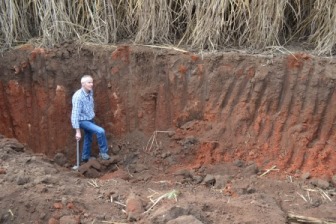
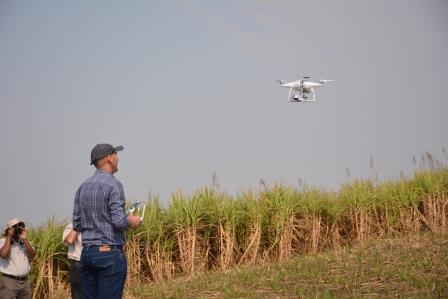
2017 FIELD DAY: HILLHEAD ESTATES, DURBAN NORTH COAST
The field day focussed on yield productivity maps which are useful tools to identify weak areas and for precision agriculture. Some of the reasons for practising precision agriculture are to use inputs (i.e. fertiliser) more efficiently and to maximise outputs (i.e. profits). Various techniques are available to quantify field variability and these were demonstrated and discussed on the day. topics covered included:
- Current methods to quantify soil variability and development of maps for precision agriculture (Neil Miles, SASRI),
- The use of drone technology (Abraham Singels, SASRI)
- Quantifying yield variability (Peter Tweddle, SASRI & Alasdair Harris, THS)
- Quantifying soil variability (Rian van Antwerpen, SASRI)
PREVIOUS FIELD DAYS
2016: Managing for sustainability during difficult times – Darnall
2015: On-farm Pest and Disease Monitoring and Management, Kearsney

